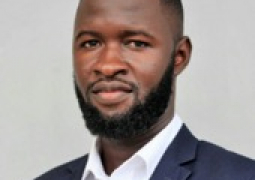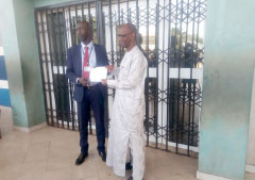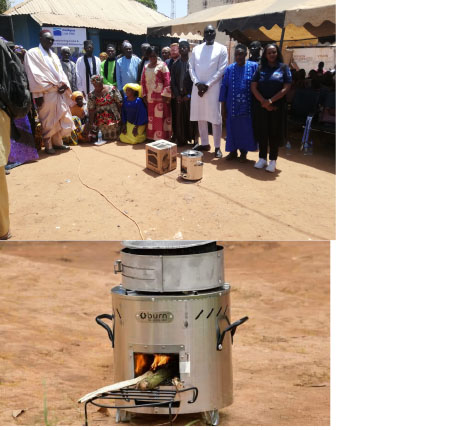
The process and drudgery involved from fetching firewood to the finish product mostly under blazing heat, is a major health threat and one that leaves much to be desired. This among other daily nightmares rural women go through, will soon be a thing of the past with the launch and introduction on Monday at Soma Area Council of DelAgua’s new integrated improved cook stove for rural communities.
Under the initiative dubbed- 'Live Well programme', a partnership between DelAgua Health Implementation and The Gambia government, rural women now stand a chance of benefitting from integrated improved cook stove, education and support programme free of charge.
This improved cook stove, according to officials, is believed to be the world’s most fuel-efficient, advanced rocket stove, manufactured in Kenya.
For now, Lower River Region as the piloted region would receive 25,000 cook stoves out the 125,000 to be rolled out across the country targeting rural communities by the end of 2024.
Welcoming the delegation, Seedy Lamin Bah, governor of Lower River Region, recalled that sometime in November last year, he received a phone call from an official from the project during which they discussed as how to pilot the project in his region.
“Without hesitation, I told the official that this is a good project and it will start in my region.”
Governor Bah indicated that following their discussion, the official promised him that 2000 integrated improved cook stove as a pilot project would be delivered to the Lower River Region.
“Owing to the need and demand from the rural women, it was agreed for additional increment to meet the growing demand.”
He made reference to the increasing threats of climate change especially in rural areas, where forest covers are being constantly exploited in the name of fire woods and charcoal burning.
To this end, Bah hailed the project as a life changing one as the integrated improved cook stove would serve as an alternative without cutting the forest and use little firework and is less time consuming.
Ousman Badjie, country representative and supply chain manager of DelAgua Health Implementation, informed that the company is operating mainly in countries in eastern Africa.
“Until recently, we started expanding operation in some West Africa including The Gambia. In The Gambia, we are in partnership with the government of The Gambia specifically the Ministry of Petroleum and Energy for the distribution of higher energy cook stoves. But not only is our partnership limited to the Ministry, we have other very important and critical players in this regards and include, Ministries of Gender and Social Welfare, Health and Lands.”
The project, he added, is being piloted in Lower River Region but hopefully with time it will roll-out across other rural communities in The Gambia.
Euan McDougall, Chief Operating Officer, DelAgua Health Implementation, acknowledged that 95% of the rural population cooks on wood fuelled traditional fires usually indoors.
“This has devastating consequences for the environment, nature and for the health of women and children in particular who cook and tend to the fire and so suffer the most from household air pollution.”
He expressed optimism that this clean cooking is the basic human right and no one should be deprived because of lack of income. “I am delighted that though the Live Well programme we are able to provide, free of charge, clean cooking combined with the long term education and support that will transform family’s lives.
Abdou Jobe, minister of Petroleum and Energy, lauded the project and the timely launch in Soma.
He commended the President of the Republic, H.E. Adama Barrow for creating an enabling environment and for making women empowerment his government’s top priority.
The project, he added, is aimed at improving the lives and livelihoods of rural women in the country, while at the same time conserving the environment and ensuring energy access.
To this end, Minister Jobe thanked DelAgua Health Implementation for choosing The Gambia to roll out the project, further expressing his ministry’s resolve to support the DelAgua team in the country in their quest to improve the lives of rural women.
Launching the project, Naomi Williams, deputy permanent secretary at the Ministry of Gender, Children and Social Welfare, expressed sincere appreciation to DelAgua Health team and all stakeholders for the laudable initiatives.
The project, she added, would go a long way in changing the lives and livelihoods of rural women in the country.
She acknowledged that 90% of the rural population cooks on wood fuelled traditional cooking methods usually indoors, which she said, has greatly contributed to climate change, nature and even economic well being of women. “This is a major contributor to carbon emission, deforestation and climate change. Therefore, the positive impact the improved integrated cook stoves has on the United Nations Sustainable Development Goals, cannot be overemphasised.”
She reminded that air pollution caused by open fires lead to environmental and health risks that predominantly affects women and girls, who are usually responsible for cooking.
“Therefore promoting production and use of efficient cook stoves and alternative cooking both at the household and commercial level is paramount. Access to clean cooking technology would not only be beneficial to the environment by cutting down carbon emission, reduce deforestation and improve air quality, but also empower health of rural women.”
Others speakers included Yahya Jarjusey, chief of Jarra West and Monica Keza from DelAgua Health team. The launch was punctuated with performances by Gambia’s Kora mastero, Jaliba Kuyateh and Kumareh band.
Read Other Articles In National News
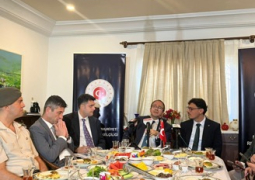
Ambassador Oba extols Gambia-Turkiye Cooperation at breakfast presser
Jan 13, 2026, 11:27 AM
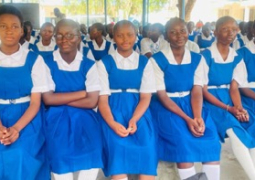
MOHERST presents Virtual Reality tools to St. Joseph Girls School
Mar 19, 2025, 11:48 AM
